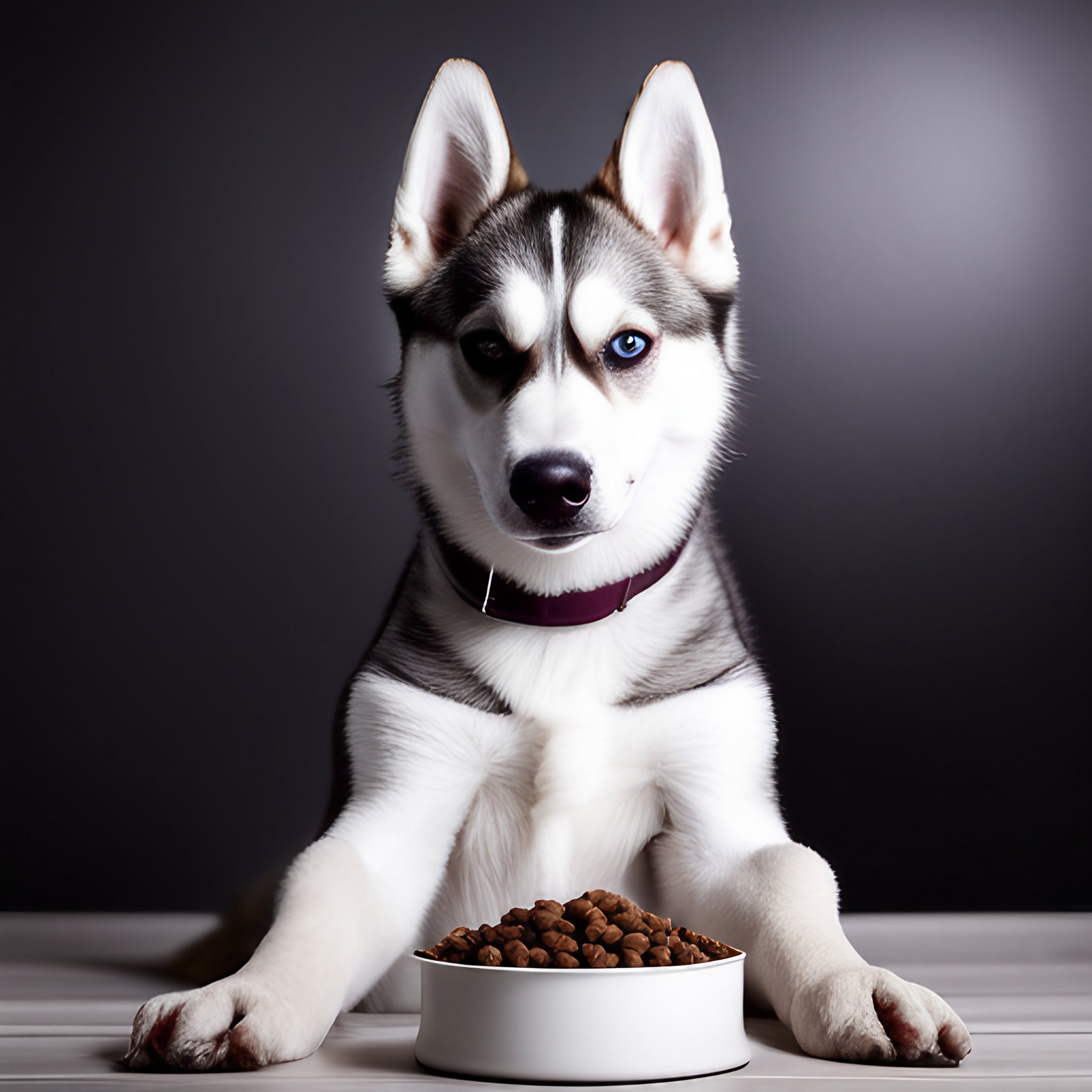Huskies are one of the most beautiful dog breeds out there. Their thick fur coat, piercing blue eyes, and playful demeanor have won many hearts. However, with great beauty comes great responsibility. As a husky owner, you need to ensure that your furry friend is getting the right nutrition to stay healthy and energetic. Finding the best dog food for huskies can be challenging, especially with the wide variety of options available in the market. In this blog post, we’ll help you understand the unique dietary needs of huskies and give you some useful tips to choose the right food for your beloved pet.
1. Understand Your Husky’s Nutritional Needs
Huskies have high energy levels and require a significant amount of protein in their diet to maintain their muscles and organs. They also need foods that are rich in Omega-3 and Omega-6 fatty acids for their skin and coat health. Huskies are prone to certain health issues, including allergies and joint problems. So, make sure to avoid foods that contain grains, fillers, and artificial additives. Instead, go for high-quality proteins like chicken, turkey, fish, and beef, combined with wholesome fruits and vegetables that provide vitamins and minerals.
It’s important to choose the best dog food for your husky as their nutritional needs differ from other dog breeds. A diet high in protein, omega-3 fatty acids, and glucosamine will help maintain their strong, muscular physique and keep their coat shiny and healthy. When searching for the best food, avoid ingredients such as fillers, grains, and artificial preservatives. Instead, embrace natural and wholesome options that will keep your husky healthy and active for years to come.
2. Choose the Right Type of Dog Food
There are different types of dog food available, such as kibble, canned, and freeze-dried. Kibble is the most common type and is great for puppies and adult dogs. You can also mix it with wet food occasionally to add variety. Canned food is high in moisture and excellent for senior dogs or huskies who have trouble drinking enough water. Freeze-dried food retains the nutritional value and tastes amazing. It’s perfect for camping or traveling with your husky.
It’s important to consider your Husky’s specific needs, such as their activity level and age, when selecting their food. Look for quality ingredients, balanced nutrients, and avoid fillers and by-products. While it may seem overwhelming with so many options available, taking the time to choose the best dog food for your Husky is a decision that will pay off in their longevity and overall wellbeing.
3. Look for Top-Quality Brands
When it comes to your husky’s health, quality should be your top priority. Some brands use low-quality ingredients and fillers that can affect your husky’s digestion and overall health. Always check the label and avoid dog foods with corn, soy, wheat, and by-products. Instead, look for quality brands that use ethically sourced, whole ingredients such as Orijen, Taste of the Wild, and Merrick.
A premium brand will ensure your Husky receives an adequate amount of protein, carbohydrates, fat and other essential nutrients, which will help maintain a healthy weight and glossy coat. Keep in mind that not all foods are created equal, and a good quality brand is the secret to a happy and healthy Husky. So, look for trusted, reputable brands, read the ingredients carefully, and pay attention to your Husky’s individual needs to ensure you’re providing the best nutrition possible.
4. Consider Your Husky’s Age and Activity Level
Your husky’s age, size, and activity level also play a significant role in determining their food requirements. For example, puppies need more protein and fat to support their growth and development. Adult huskies require a balanced ratio of protein, carbohydrates, and fat to maintain their energy levels. Older huskies need lower calorie intake and foods enriched in antioxidants and anti-inflammatory ingredients to promote joint health.
When it comes to Huskies, not all dog foods are created equally. It’s essential to consider their age and activity level to ensure they are getting the necessary nutrients to keep them thriving. For instance, young puppies require a nutrient-dense diet to support their growth and development, while senior Huskies need low-calorie food to maintain healthy weight. Additionally, highly active and working Huskies require high-protein food, while less active dogs may need a lower calorie diet. By taking the time to consider your Husky’s age and activity level when selecting their food, you can give them the best chance of a healthy and happy life.
5. Seek Veterinary Advice
If you’re still unsure about the best dog food for your husky, it’s always better to seek professional advice from your veterinarian. They can give you customized recommendations based on your husky’s unique needs and preferences. You can also consult certified pet nutritionists who can create a tailored diet plan for your husky.
Seek veterinary advice to help guide you in choosing the best dog food for your husky. A veterinarian can provide you with valuable insights into your husky’s specific nutritional needs and help you select a food that meets those needs. From discussing the ideal balance of macronutrients to considering your husky’s activity level and any possible health concerns, seeking veterinary advice can help ensure that your husky is getting the nutrition they need to thrive. Don’t leave your husky’s nutrition up to chance – consult with a veterinarian to make an informed decision about their diet.
Final Thoughts
A healthy and balanced diet is essential for your husky’s well-being. By understanding your husky’s nutritional needs, choosing the right type of food, looking for quality brands, considering your husky’s age and activity level, and seeking veterinary advice, you can provide the best food for your furry friend. Remember that a well-balanced diet, combined with adequate exercise and love, will keep your husky happy, healthy, and playful for years to come!
